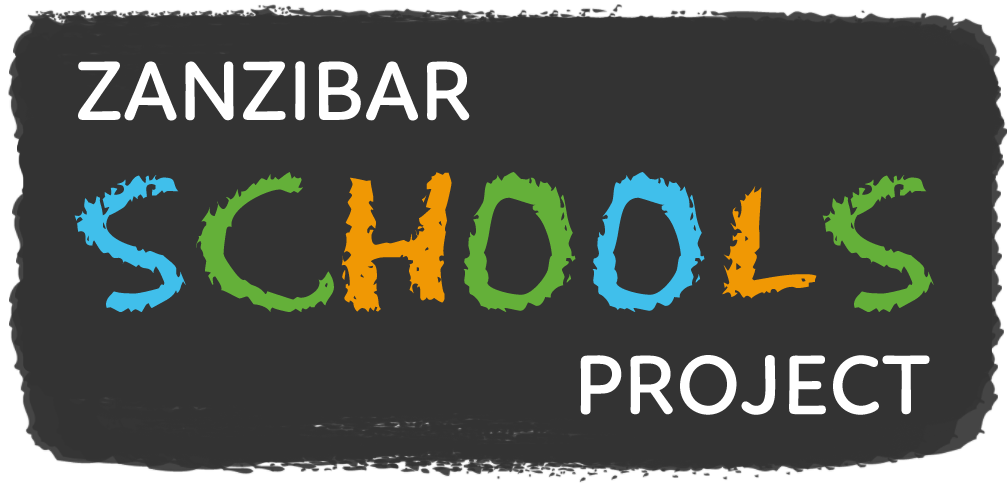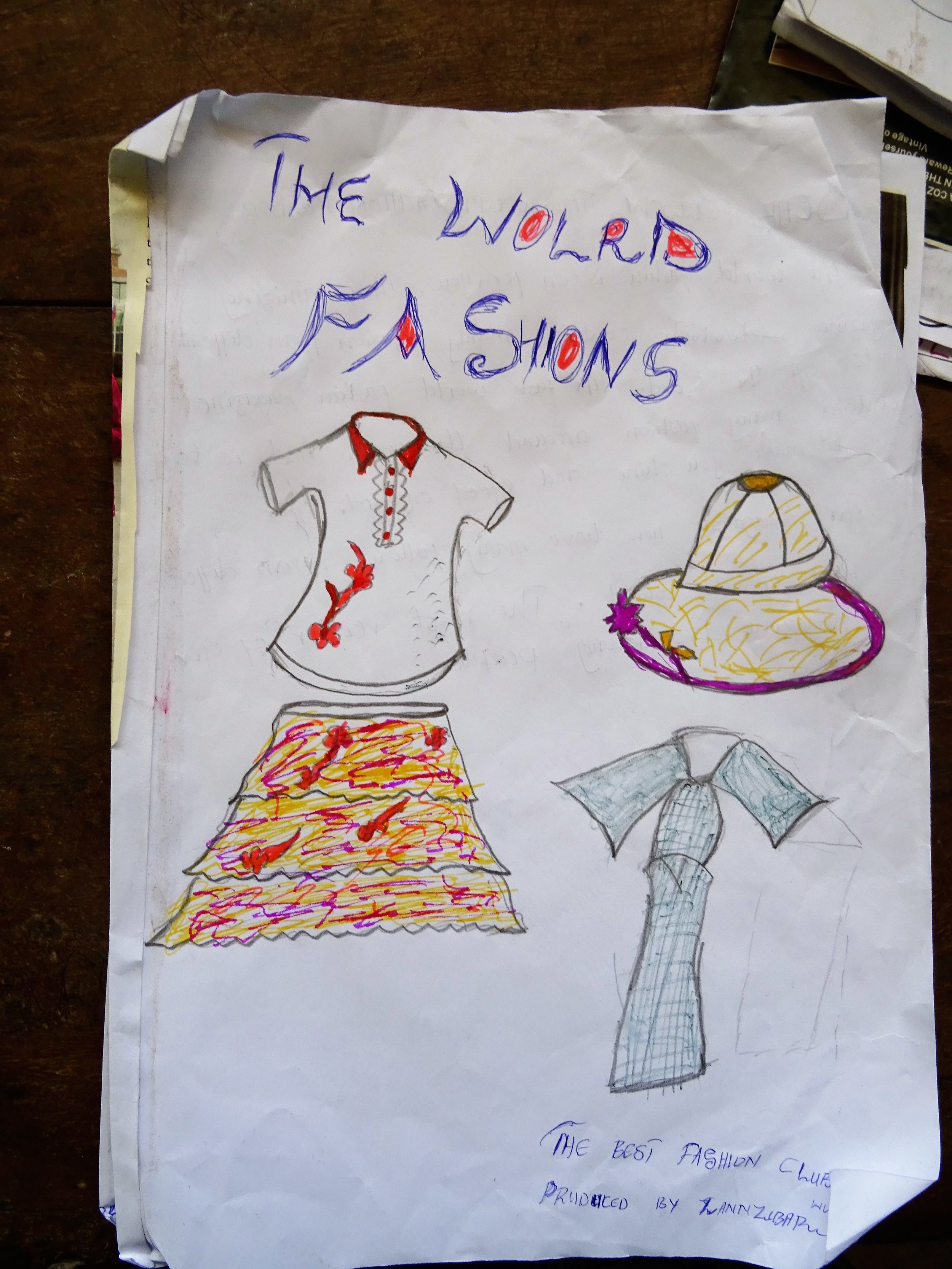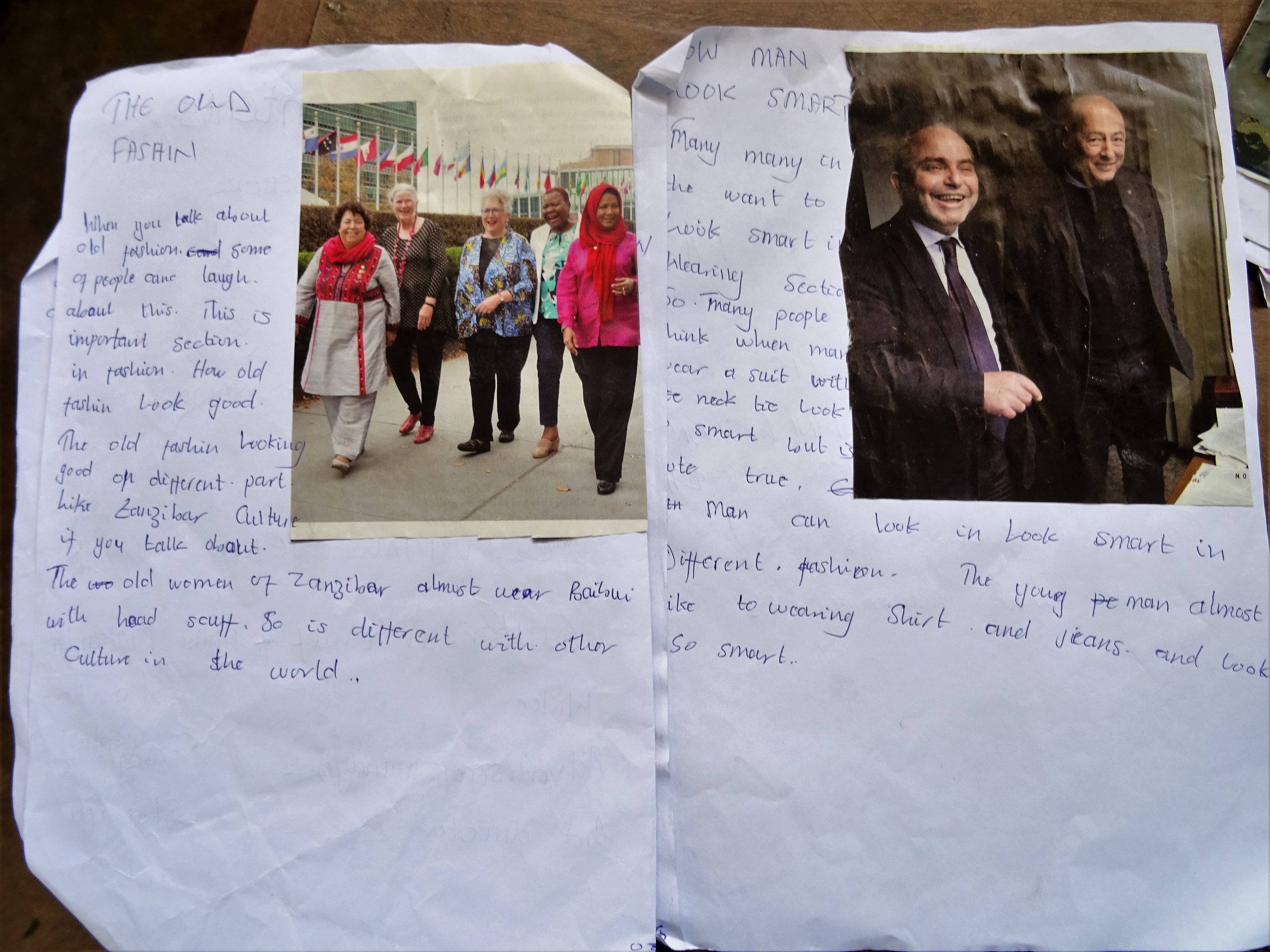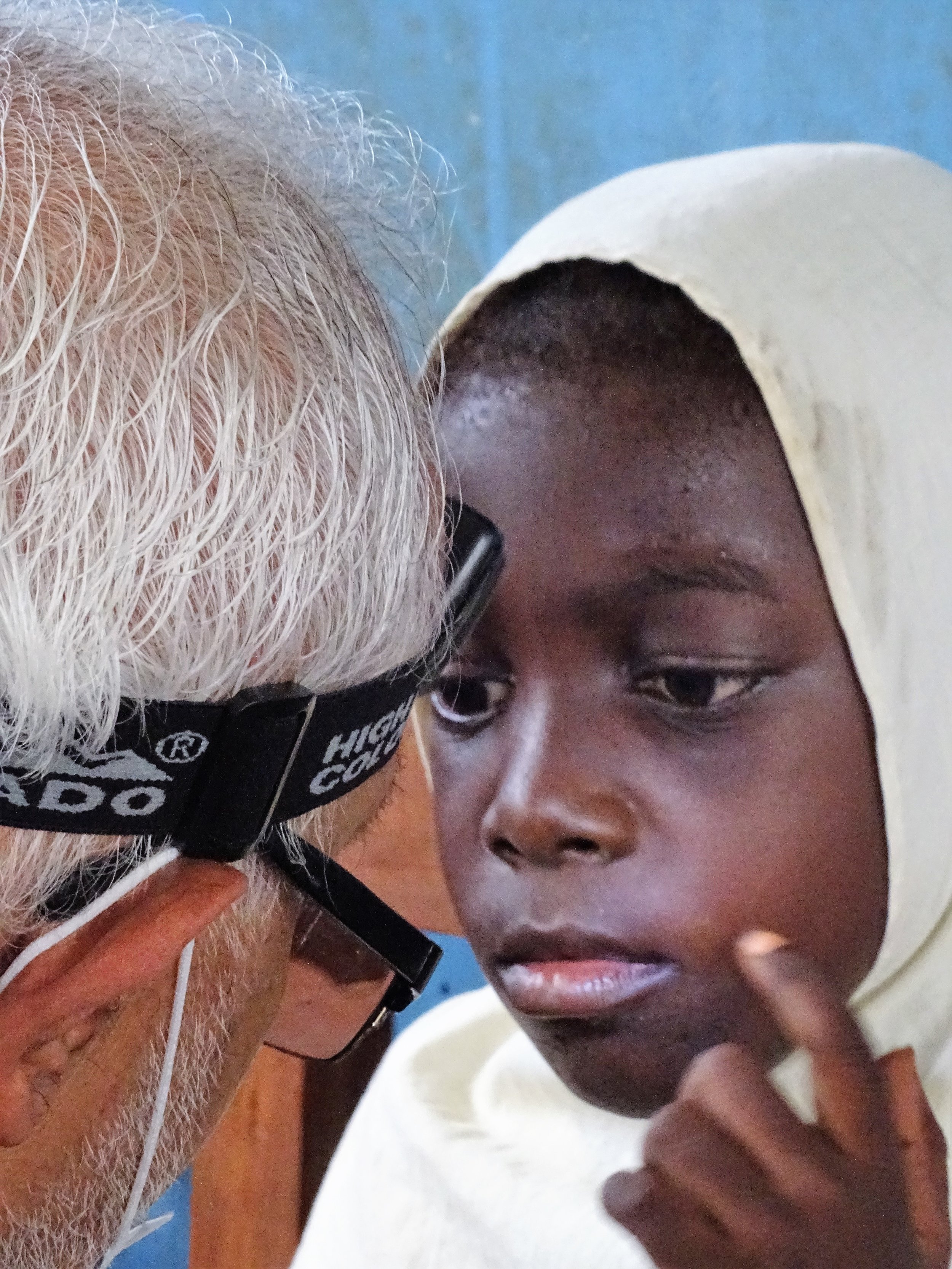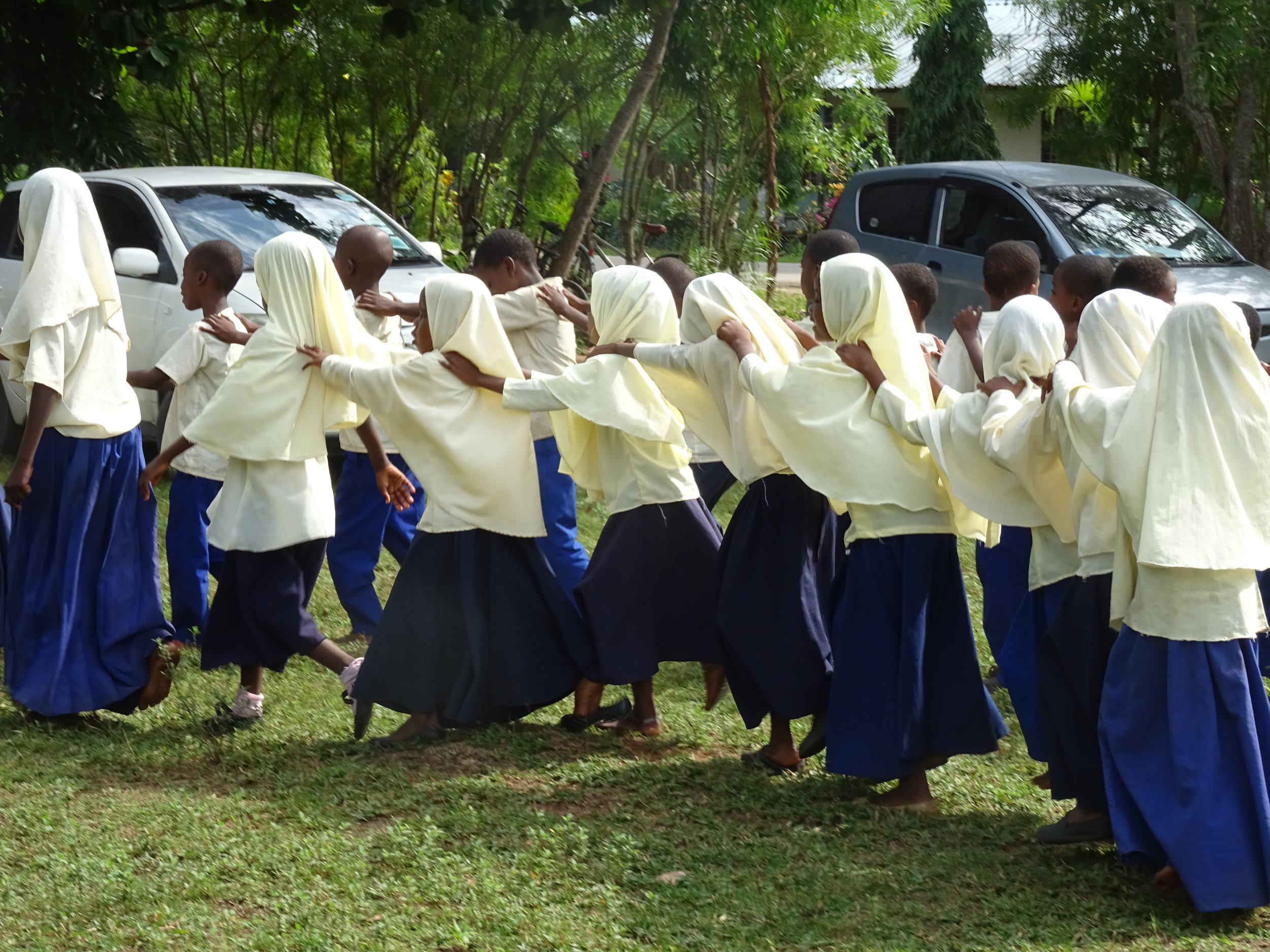“We’re going to work on a project, working in groups of four, every team will produce their own magazine. The deadline is a week today”. Duly the class translated the instructions into Kiswahili. Then they looked at a selection of donated magazines. The roles of Editor-in-Chief, Advertisement Manager, Writer and Art Director were divided out and the groups considered possible topics and target audiences for their magazines. One of the students. Sharifa said that she wasn’t convinced that everyone understood the instructions so gave a long lecture in Kiswahili. One team of girls decided that their magazine would be “For the brave women of Zanzibar” and another group, inspired by a feature from an in-flight magazine decided that their journal would be about furniture. A group of the younger boys wrote about travel and Sharifa wrote a beautifully inclusive magazine about fashion that included the following editorial views: “When you talk about Old Fashion some people can laugh but this is important section that old fashion look good.”
The second lesson on the magazine project covered a lot of the same teaching points as the first. One of the brightest students, Mulhat, (aged 16 and whose English has been perfected by watching the entire Disney back catalogue), explained that she’d never done projects before, but loved her first one. Her magazine took the topic of “Furniture”. It’s great to encourage students to express themselves in English as well as seeing them working as teams. After four days the magazines were complete – one had an enticing introductory offer of 80% off nd another has a twitter feed!
The second project this term was based on the Ecotourism presentation Maria gave recently. Caroline has divided the more advanced students into small teams who have decided on a focus for their imaginary small businesses. The teams were set into action to decide on an enterprise to undertake and a name for that enterprise. Results were very reflective of the lives and experience of our students. A company called ‘Beautiful Culture’ was set up to create handicrafts for sale at a local hotel. ‘Free Farm’ is a small firm concerned with keeping laying hens and selling their eggs. ‘Chicken Project’ will buy in fertilised eggs and hatch chickens for sale to a variety of chicken farms for further commercial exploitation. ‘New Model Flower’ is a small concern offering a service painting henna tatoos on interested customers. ‘Kanga Shop’ is a highly competitive company that trades in Kangas (brightly coloured printed cotton fabric) in a cut throat market.
Once the companies were set up, business plans were discussed covering topics such as investment, marketing, production and profits. Students were introduced to concepts such as capital, depreciation, operating costs and cash flow. Business English will prove very useful to these students in the future. Already three of the community students are putting what they’ve learnt into practice. Two young men have been building their own fishing boat and are now working on a proposal for a microfinance loan to help them buy the nets. And Sharifa is working out the potential for scaling up her tailoring business. Good luck to them with their new enterprises!
Dental health is a real problem on the island. Our friend Feroz, is a retired dentist from Brighton. He visits the island regularly to lead initiatives to improve dental hygiene particularly in rural areas and to educate children about brushing teeth. Assisted by a local dentist and a group of young dentists from Germany, Feroz visited Unguja Ukuu Primary School. It’s incredible to see the enormity of the scale of the problem of tooth decay. The dentists managed to examine 300 out of the 800 primary school children and found that 200 needed urgent work on their teeth. To think that this number of children have toothache most of the time and that their teeth are so bad that they need extractions is horrifying. The dentists estimate that ony a third of children use toothbrushes regularly. Three classrooms were required for the dental camp – in one children were registered and had initial screening. Those requiring urgent extractions were given a slip of paper detailing what treatment they needed which they gave to the dentist who treated them. The second classroom was like a production line with children being treated at their school desks. About 5 or 6 children were treated simultaneously. Unfortunately the German dentists couldn’t explain to them in Swahili what the treatment process would be, so our teacher Mohammed was drafted in to help. There were no parents on hand to offer any comfort so our volunteer Suzie held hands and cuddled the children who were most upset. Ros and I turned a third classroom into a waiting area where we played with balloons with the children to distract them from the screams coming from the treatment area. Although the children were very upset, this approach to treatment is the only solution as they needed to have the teeth removed as there’s no nearby dental care and dental health isn’t a priority for their parents who struggle to make ends meet. It’s a tough experience for the dentists and we could see that they were shattered at the end of the day. We so admire them for spending their holidays this way and for Feroz’s amazing leadership to set up these important health camps.
